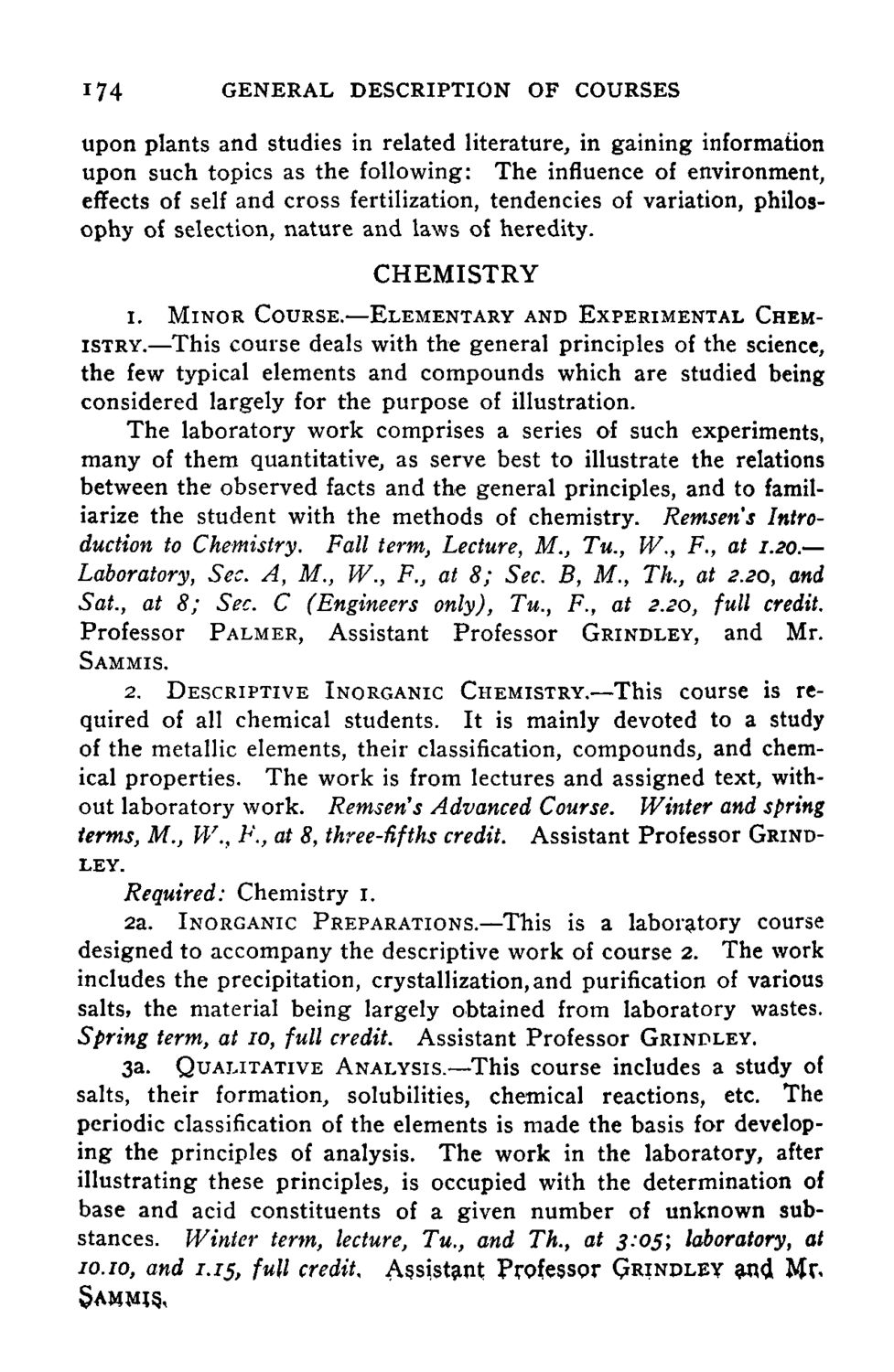| |
| |
Caption: Course Catalog - 1897-1898
This is a reduced-resolution page image for fast online browsing.

EXTRACTED TEXT FROM PAGE:
174 GENERAL DESCRIPTION OF COURSES upon plants and studies in related literature, in gaining information upon such topics as the following: The influence of environment, effects of self and cross fertilization, tendencies of variation, philosophy of selection, nature and laws of heredity. CHEMISTRY 1. MINOR COURSE.—ELEMENTARY AND EXPERIMENTAL CHEM- ISTRY.—This course deals with the general principles of the science, the few typical elements and compounds which are studied being considered largely for the purpose of illustration. The laboratory work comprises a series of such experiments, many of them quantitative, as serve best to illustrate the relations between the observed facts and the general principles, and to familiarize the student with the methods of chemistry. Remsen's Introduction to Chemistry. Fall term, Lecture, M., Tu., W., F., at 1.20.— Laboratory, Sec. A, M., W., F., at 8; Sec. B, M., Th., at 2.20, and Sat., at 8; Sec. C (Engineers only), Tu., F., at 2.20, full credit. Professor PALMER, Assistant Professor GRINDLEY, and Mr. SAMMIS. 2. DESCRIPTIVE INORGANIC CHEMISTRY.—This course is re- quired of all chemical students. It is mainly devoted to a study of the metallic elements, their classification, compounds, and chemical properties. The work is from lectures and assigned text, without laboratory work. Remsen's Advanced Course. Winter and spring terms, M., W., F., at 8, three-fifths credit. Assistant Professor GRINDLEY. Required: Chemistry 1. 2a. INORGANIC PREPARATIONS.—This is a laboratory course designed to accompany the descriptive work of course 2. The work includes the precipitation, crystallization, and purification of various salts, the material being largely obtained from laboratory wastes. Spring term, at 10, full credit. Assistant Professor GRINPLEY. 3a. QUALITATIVE ANALYSIS.—This course includes a study of salts, their formation, solubilities, chemical reactions, etc. The periodic classification of the elements is made the basis for developing the principles of analysis. The work in the laboratory, after illustrating these principles, is occupied with the determination of base and acid constituents of a given number of unknown substances. Winter term, lecture, Tu., and Th., at 3:05; laboratory, at 10.10, and 1.15, full credit. Assistant Professor GRINDLEY and Mr.
| |